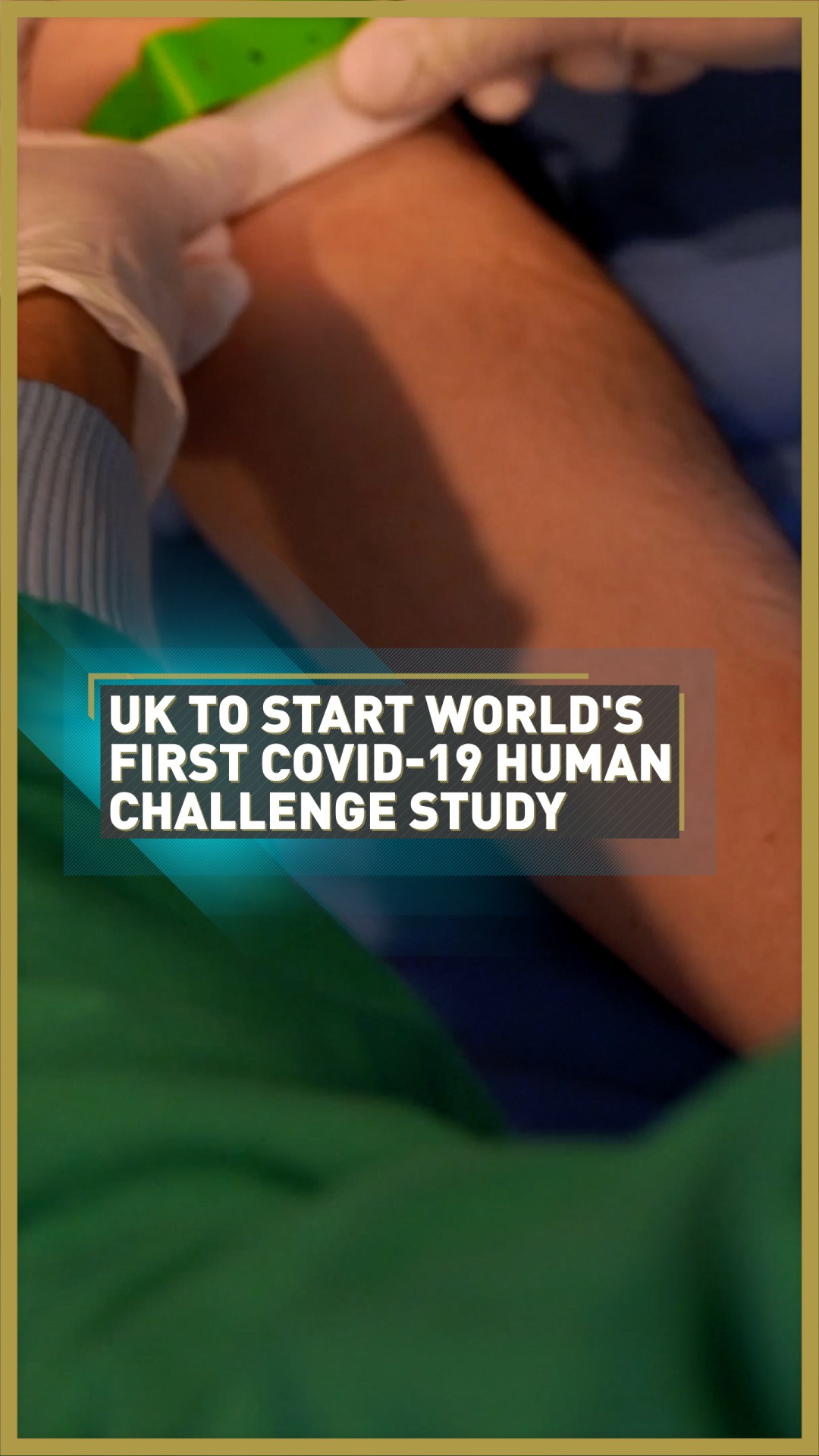01:24

A COVID-19 human challenge study, the first of its kind in the world, is set to begin in the UK within a month after receiving ethics approval.
The study will aim to establish the smallest amount of virus needed to cause infection, to help scientists and doctors understand COVID-19 and support the pandemic response by facilitating vaccine and treatment development.
Backed by a $47 million UK government investment, it is being delivered by a partnership between the government's Vaccines Taskforce, Imperial College London, the Royal Free London NHS Foundation Trust and clinical company hVIVO, a subsidiary of the pharmaceutical firm Open Orphan.
It will include 90 carefully selected, healthy adult volunteers, who will be exposed to the virus in a safe and controlled environment. Volunteers will be compensated for the time they spend in the study.
"Most of our volunteers have full time jobs, so it's payment for their time, the inconvenience to spend two weeks in a quarantine unit," Open Orphan CEO Cathal Friel told CGTN Europe.
To ensure the safety of the participants, they will be exposed to the version of the virus that has been circulating in the UK since March 2020 as it has been shown to be of low risk in young healthy adults.
Medics and scientists will closely monitor the effect of the virus on volunteers and will be on hand to look after them 24 hours a day.
"This is the first time the world of science can see the exact moment of infection, what happens, and that's really important," said Friel.

The study will help identify the most effective vaccines so their development can be prioritized. /Kay Nietfeld/AP
The study will help identify the most effective vaccines so their development can be prioritized. /Kay Nietfeld/AP
The researchers and the medics involved in the study will ensure it does not impact on the National Health Service's (NHS) ability to treat patients during the pandemic.
After the completion of the initial study, vaccine candidates, which have proven to be safe in clinical trials, could be given to some volunteers, to identify the most effective vaccines and prioritize their development.
"While there has been very positive progress in vaccine development, we want to find the best and most effective vaccines for use over the longer term," said the UK's Business Secretary Kwasi Kwarteng.
"These human challenge studies will take place here in the UK and will help accelerate scientists' knowledge of how coronavirus affects people and could eventually further the rapid development of vaccines."

Boris Johnson's government is investing $47 million in the research. /Scott Heppell/AP
Boris Johnson's government is investing $47 million in the research. /Scott Heppell/AP
Human challenge studies have been performed safely over the decades, and have played a key role in speeding up the development of treatments for diseases including malaria, typhoid, cholera, norovirus and flu.
The trials have also helped researchers establish which possible vaccine is most likely to succeed in phase three clinical trials that would follow, usually involving thousands of volunteers.
This initial study will also help doctors understand how the immune system reacts to coronavirus and identify factors that influence how the virus is transmitted, including how a person who is infected with COVID-19 virus transmits infectious virus particles into the environment.
"It will answer a wide range of fundamental scientific questions that are not feasible with traditional field trials, such as exactly what type of immunological response is required to confer protection from re-infection," said Andrew Catchpole, hVIVO's Chief Scientific Officer.
Video Editor: Terry Wilson

